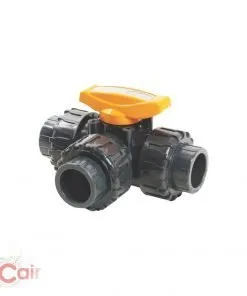Comparing UPVC Valves with Traditional Materials: Pros and Cons
Choosing the right valve material is crucial for the efficient functioning of various systems. In this comparison, we explore the merits of UPVC (Unplasticized Polyvinyl Chloride) valves against traditional options. UPVC Valve Advantages: Corrosion Resistance: UPVC valves are highly resistant to corrosion, making them ideal for diverse industrial applications. Chemical Stability: The material exhibits excellent chemical stability, ensuring longevity in harsh environments. Lightweight: UPVC valves are significantly lighter than traditional options, facilitating easier installation and maintenance. Traditional Valve Materials: Metal Options: Traditional valves often utilize metals like brass, bronze, or stainless steel, which can be susceptible to corrosion. Weight Concerns: Metal valves are generally heavier, posing challenges during installation and transportation. When considering valve materials, the versatile and durable nature of UPVC stands out, making the choice clear for thos...

